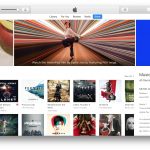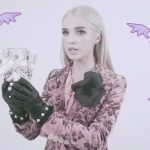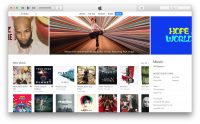It’s Not Just Taylor Swift—Streaming Music’s Biggest Holdouts Are Caving In
It wasn’t long ago that recommending Spotify to a friend came with an annoying caveat: Well, it’s most of the music you’d want, but the Beatles aren’t there. No Led Zeppelin or Prince. Some of the indie labels are weird about it. Oh, and Taylor Swift pulled her catalog.
For fans of these artists, the streaming revolution sounded more like a limp handshake between the past and the future, a lukewarm compromise. Now that’s starting to change.
Today Bob Seger, one of the longest streaming holdouts, is finally coming to Apple Music, Spotify, Amazon Music, and other all-you-can-stream music-subscription services. The 72-year-old rock legend, famously slow to adopt new music distribution formats, has long been wary of streaming because of its low royalty payouts. Something obviously sparked a change of heart, as 13 of Seger’s albums are now available to stream.
Seger’s reversal is part of a broader trend. In the last few years, we’ve seen the music of the Beatles, Led Zeppelin, Prince (RIP), Pink Floyd, Neil Young, and AC/DC all land on streaming services after years of hesitation. Amazon even managed to nab Garth Brooks’s catalog, whose music wasn’t even on iTunes. Last week, Taylor Swift put aside her very public differences with Spotify and brought her catalog back to the streaming market leader. While some opined about Swift’s desire to undermine rival pop star Katy Perry on the day of her new album’s release, the decision likely had more to do with business than pettiness.
The slow thaw in artists’ discontent is easy to understand once you see the numbers. Last year, streaming made up more than 50% of the music industry’s revenue for the first time. As services like Spotify and Apple Music have reeled in more customers, revenue from subscriptions has exploded, more than doubling in 2016 and driving an 11% increase in overall music industry revenue. That’s right: After a more than decade-long, dramatic free fall, the music industry is finally growing again. And it’s mostly thanks to streaming.
In 2017, it feels like we’re officially moving past the debate about whether streaming is the right way forward for music, and more toward an acceptance that it’s the future, albeit one with some critical questions still looming. And for artists—especially legacy musicians with big back catalogs—any remaining discomfort over the economics seems to give way to a simple fact: If your music isn’t on streaming, you’re missing out on millions of listeners as a new source of revenue. As more listeners shift to streaming, the holdouts become less relevant.
This isn’t to say that the streaming model is perfect. Just because major labels are happy doesn’t mean artists are. Per-stream royalty payouts are still a fraction of a cent, and Spotify itself is still figuring out a realistic path to profitability as it prepares to go public. Spotify’s own revenue grew 50% last year, to $3.3 billion. Impressive numbers, but again, that cash doesn’t always trickle down to artists in satisfactory sums. (Spotify, to its credit, is trying to find new ways to serve artists’ needs in the meantime.)
Which is why, even with all the writing on the walls, there are still holdouts. Good luck finding Dr. Dre’s The Chronic on Spotify. (It is, unsurprisingly, on Apple Music.) Artists like Tool and King Crimson are nowhere to be found in the streaming universe, while Adele famously waited seven months before bringing her blockbuster album 25 to Spotify and Apple Music. Revered indie label Drag City has kept its catalog off of streaming services, opting instead to make it available on Bandcamp.
While the economics of streaming continue to shake out, there will always be artists who justifiably prefer to hold back. But that list keeps getting shorter. Hopefully for the Neil Youngs and Adeles of the future, that means that things are at least heading in the right direction.
Even with the economic model still uncertain, more artists are realizing they have to get on the streaming bandwagon or face irrelevance.
It wasn’t long ago that recommending Spotify to a friend came with an annoying caveat: Well, it’s most of the music you’d want, but the Beatles aren’t there. No Led Zeppelin or Prince. Some of the indie labels are weird about it. Oh, and Taylor Swift pulled her catalog.
Fast Company , Read Full Story
(12)













